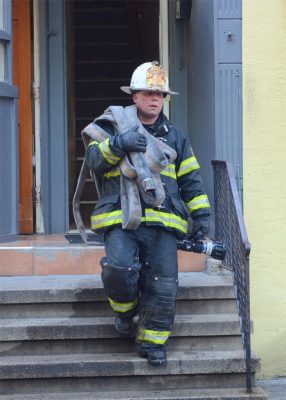Fire fighters deal with potentially traumatic events almost every day on the job, and some may experience painful memories in the aftermath. The effects of a traumatic event can fade over time, but for some, those memories and feelings persist.
Mental health experts are not entirely sure why some people develop post-traumatic stress disorder (PTSD) and others do not. If stress reactions do not improve over time and begin to disrupt everyday life, it is important to seek help to determine if a mental health disorder is present.
The concept of PTSD has been recognized for centuries but has been called many different names. Previously, terms including “shell shock” and “battle fatigue” have been used to explain PTSD. About 1 in 11 individuals will have PTSD in their lifetime, according to the American Psychiatric Association.
Some signs and symptoms of PTSD can include:
Intrusive memories
Avoidance
Negative changes in thinking and mood
Changes in physical and emotional reactions

Fire fighting is a tough job — both mentally and physically.There is no shame in seeking treatment for PTSD or other behavioral health issues. You are not alone. Call the IAFF Center of Excellence to learn more about treatment options and support. Telephones are staffed around the clock with professionals who understand these issues and can help you get into a program that works best for you.